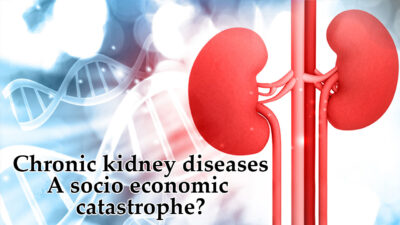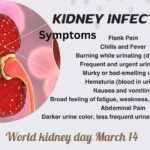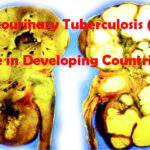Renal complications on the rise amid COVID pandemic continues to be a growing health crisis day-by-day. It is very important for patients suffering from kidney to take steps for the prevention of heart and blood vessel problems.


Even though the Governments are taking very precautious steps during their unlock phase, the public also need to take additional precautionary measures. The rate of infection is fifteen folds higher in people aged 80 or above and is observed to be around six folds in people above the age of 60 years. Data suggest that, of the total cases of mortality due to COVID, around 15% of them have had a history of some type of cardiac ailment leading to renal failure.
People with kidney disease are much more prone to develop heart and blood vessel disease. This increased risk is related to kidney disease and other health problems such as diabetes, high blood pressure and certain lifestyle factors including being overweight and smoking.
It is very important for patients suffering from kidney to take steps for the prevention of heart and blood vessel problems. Once the initiation is triggered towards a healthy heart, the kidneys are automatically taken care of simultaneously. These are the following steps to following order to keep your kidney as well as heart to be healthy: –
1. Timely and regular test – It turns out that heart disease is a risk factor for kidney disease and kidney disease is a known risk factor for heart disease. Hence, if you know you have one, you should have yourself tested for the other.
2. Eat a balanced, kidney and heart healthy diet – Reduce sodium in your diet. Reduce foods that are high in saturated fats and cholesterol like eggs, whole milk, cheese and fried foods. Eat more foods that are rich in omega-3 fatty acids like cold water fish flaxseed oil, canola oil and walnuts.
3. Increase physical activity – Physical activity like walking offers many health benefits, including decreasing blood pressure, lowering blood fat levels, increasing muscle strength, and helping control body weight which will make you feel good.
4. Maintain the Cholesterol levels – High blood levels of fats like cholesterol increases the chance of developing heart and blood vessel problems. Simple blood tests can check for total cholesterol and other fats in your blood. If your levels are too high, you may need to follow a low-fat diet and exercise more. Some patients may also need to take pills to help lower cholesterol.
5. Control high blood pressure – Follow your treatment plan carefully to control high blood pressure. This will help to protect your heart. Be sure to follow your fluid and sodium limits to keep fluid from building up in your body and increasing your blood pressure.
6. Regular monitoring of Blood Glucose levels – Over time, having high blood sugar can cause damage to your eyes, nerves, heart, blood vessels, and kidneys. Good control of blood sugar and other self-management actions can help slow or stop this damage from happening.
7. Smoking cessation -The strongest risk factor for both kidney and heart disease is smoking. Smoking causes harden of the arteries which causes both coronary artery disease and nephrosclerosis. Smoking is also a risk factor for high blood pressure which can cause both heart and kidney disease.
Get started protecting your heart today! Fix personal goals and start making changes one at a time. Your healthcare provider can help you prioritize your areas of change. If a person is suffering from any degree of kidney dysfunction, then they may have to change some of the above recommendations as per unique condition. Your kidney doctor and your dietician can assist with these changes.


Dr Sudeep Singh Sachdev
Nephrologist
Narayana super speciality hospital
Gurugram











